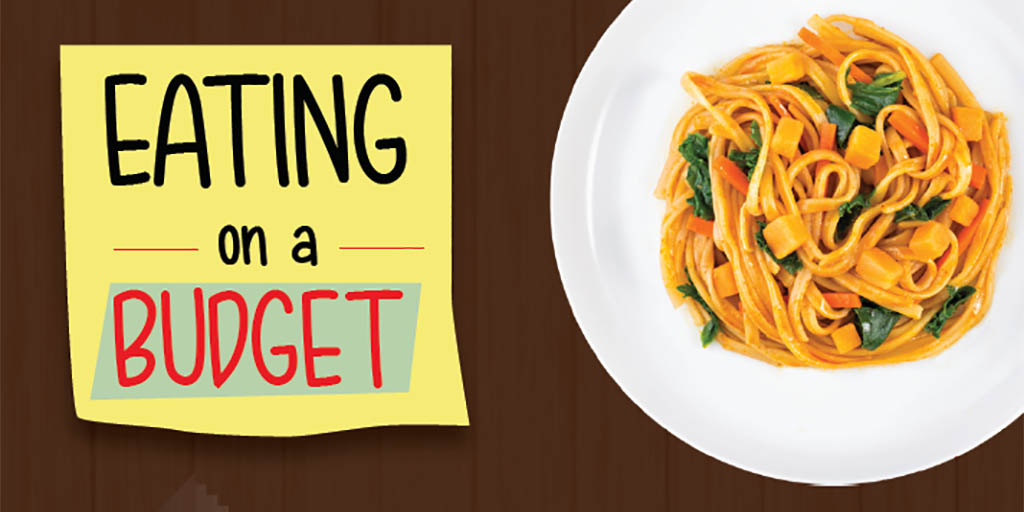Eating on a budget

Being a post-secondary student can definitely work up an appetite. Unfortunately, however, being a student also means living on a tight budget and cutting back on some of the luxuries in life. Below you’ll find a guide with some tips and tricks to budgeting food so that both your wallet and stomach are always full.
Write It Down:
Before making a grocery run, make a list of everything you need to pick up and stick to it. It’s easy to get distracted by deals or tasty looking food when you’re wondering around the store. Especially if you make the mistake of shopping on an empty stomach. While purchasing a small item here or there may not seem like a big deal, those little purchases can add up and if they’re unnecessary, why bother? Also in this area, it can be helpful when learning how to budget properly to not only write down what you plan to spend money on, but also everything that you actually do end up spending money on each day. This will help you to become much more financially aware and realize the areas in your life that may be seeing the most financial loss.
Shop The Discounts
Keep an eye on flyers for weekly deals and find out about student discounts at local grocery stores (places like Bulk Barn, Food Basics and Valu-Mart all offer promotions for students on certain days of the week). One of the biggest ways to save money is to only buy things when they are on sale. Although with the discounts it may seem like you’re only saving a small amount, the difference adds up in the long run. When you find non-perishables (spaghetti, canned goods, etc.) that are on sale for cheap, stock up and you’ll be covered for a while to come. For produce that needs to be bought every week or two in order to stay fresh (fruits, veggies, etc.), most grocery stores often have a discount rack of these produce for quite cheap. In this case, it’s important not to overstock on these items as they can go bad quickly. Not wasting food is important to saving money so these items are best bought close to the days you plan to eat them.
Buy Bulk
Similar to above, buying in bulk can mean some major savings if it’s a product that you can store for a long period of time. Keep in mind that often places such as Bulk Barn actually have worse deals compared to when you buy large pre-packaged bulk amounts such as a big bag of rice at the grocery store.
Make Time To Make Food
If you’re short on cash, you may not necessarily be short on time. The biggest way to save on food is to avoid eating out or ordering in. Instead, learn to cook cheap and easy meals yourself. If you pack a lunch and make your morning coffee at home every day, you’ll see significant savings in your bank account.
Although, buying semi-premade meals (eg. mac and cheese or frozen pizzas) can save some money, cooking from scratch can save you even more. While this sort of thing may be daunting at first, it is much easier than one would think. Do some research into easy meals that can be made quickly and if you only have a couple open nights a week, use those days to prep meals for the rest of the week. An additional tip is to find recipes that use many of the same ingredients and buy those items in bulk to keep your meals cheap, while still interesting. For example, rice can be cooked as is, but it’s also great fried or put in a soup.
All of these tips may seem like a lot to worry about at first. However, with time and dedication, these new habits will become second nature. Before you know it, you’ll having a huge collection of recipes, your budget shopping trips will become routine and you’ll be saving tons of money, quicker than you can say “bon appétit”.














